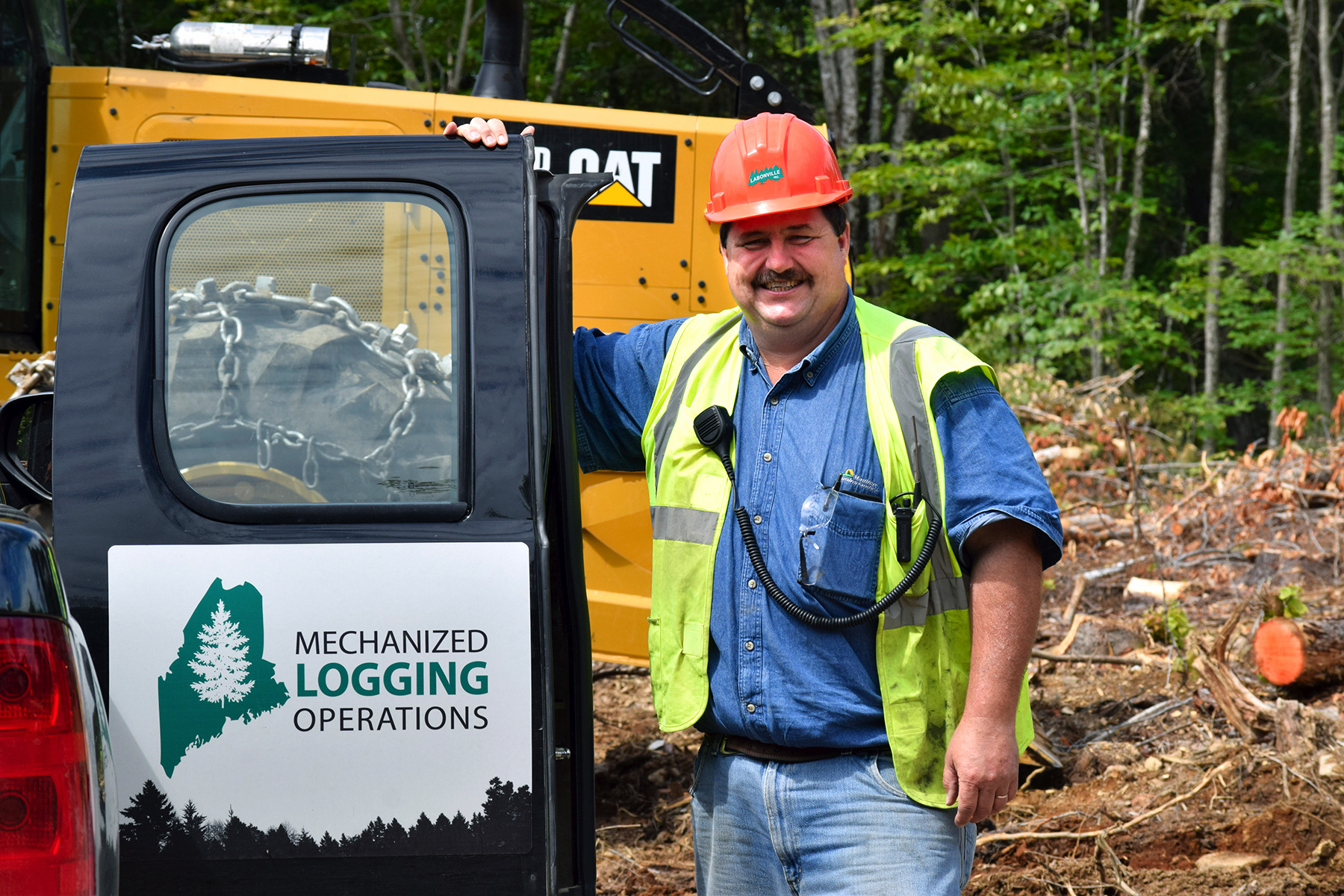
PRESQUE ISLE and MILLINOCKET, Maine — Maine’s first mechanized logging operations training is occurring in a quiet part of the woods close to Millinocket, part of a unique program developed through a partnership between Northern Maine Community College, Eastern Maine Community College, Washington County Community College and the Professional Logging Contractors of Maine.
The program aims to help address the growing need for skilled workers in the industry. Many of the current operators are approaching retirement age, creating a shortage of trained loggers.
“The industry has been very generous about supporting the creation of this program. All of the harvesting equipment is donated from Milton CAT and Nortrax Inc. and Katahdin Forest Management is providing us with the work site for the hands-on training,” stated Leah Buck, assistant dean of continuing education at NMCC and one of the developers of the program.
“Both the industry and the state of Maine recognize that logging is a vital piece of the Maine economy. It is well worth this investment to create a well-trained workforce,” Buck added.

The first cohort of mechanized logging operations students are currently training in Millinocket. The success of the program has been dependent on the support and collaboration of many, including businesses who donated equipment and the use of their land.
(Courtesy of Northern Maine Community College)
The 12-week certificate program trains operators on highly technical equipment used for 95 percent of the logging that occurs in Maine. These machines include: feller bunchers, cut-to-length harvesters, delimbers, grapple skidders and forwarders.
Program officials chose the first cohort of eight students from a pool of applicants and screened them to the highest industry standards. The screening included thorough background checks, drug testing, physical and health standard evaluation, and interviews with current logging contractors.
Students will gain a broad overview of the most common mechanical systems found on modern timber harvesting equipment. They will also become familiar with environmental regulations, safety, logging economics and basic maintenance. The first few weeks of the program included classroom training, where students also earned industry standard certifications for safety and first aid. Under the guidance of their instructors, students are currently engaged in the hands-on portion of the training, working in real-life logging conditions to prepare them for good paying careers in the logging industry.
Maine Quality Centers funded the program with monies from public sources and a 50 percent match from industry, making this a public/private partnership.
The program is designed to respond to the needs throughout the state with the most demand for skilled workers. It will relocate to those areas for each new session and will coincide with the time that is most beneficial to the industry to bring in new employees. This first session is in Millinocket, with plans to bring the training next to Presque Isle in northern Maine and then Downeast to the Calais region. Each session will be hosted by the respective community college in that region.
Program officials said Maine’s forest products sector is worth an estimated $8.5 billion annually, with the logging industry contributing $882 million to the state’s economy each year and supporting more than 7,300 direct and indirect jobs in the state.







